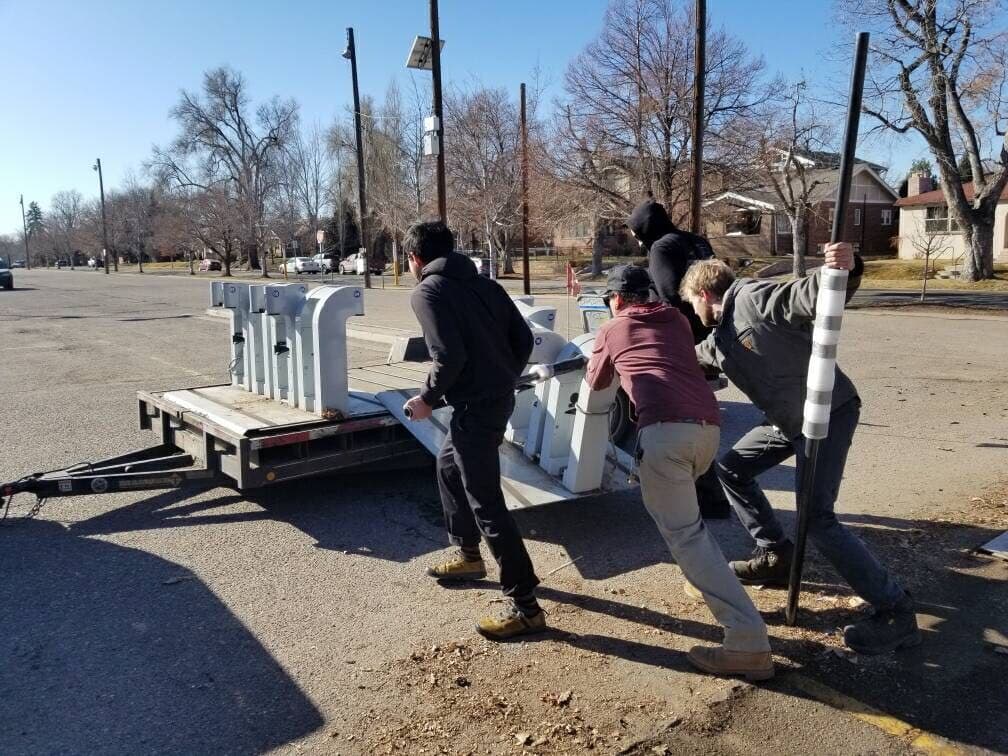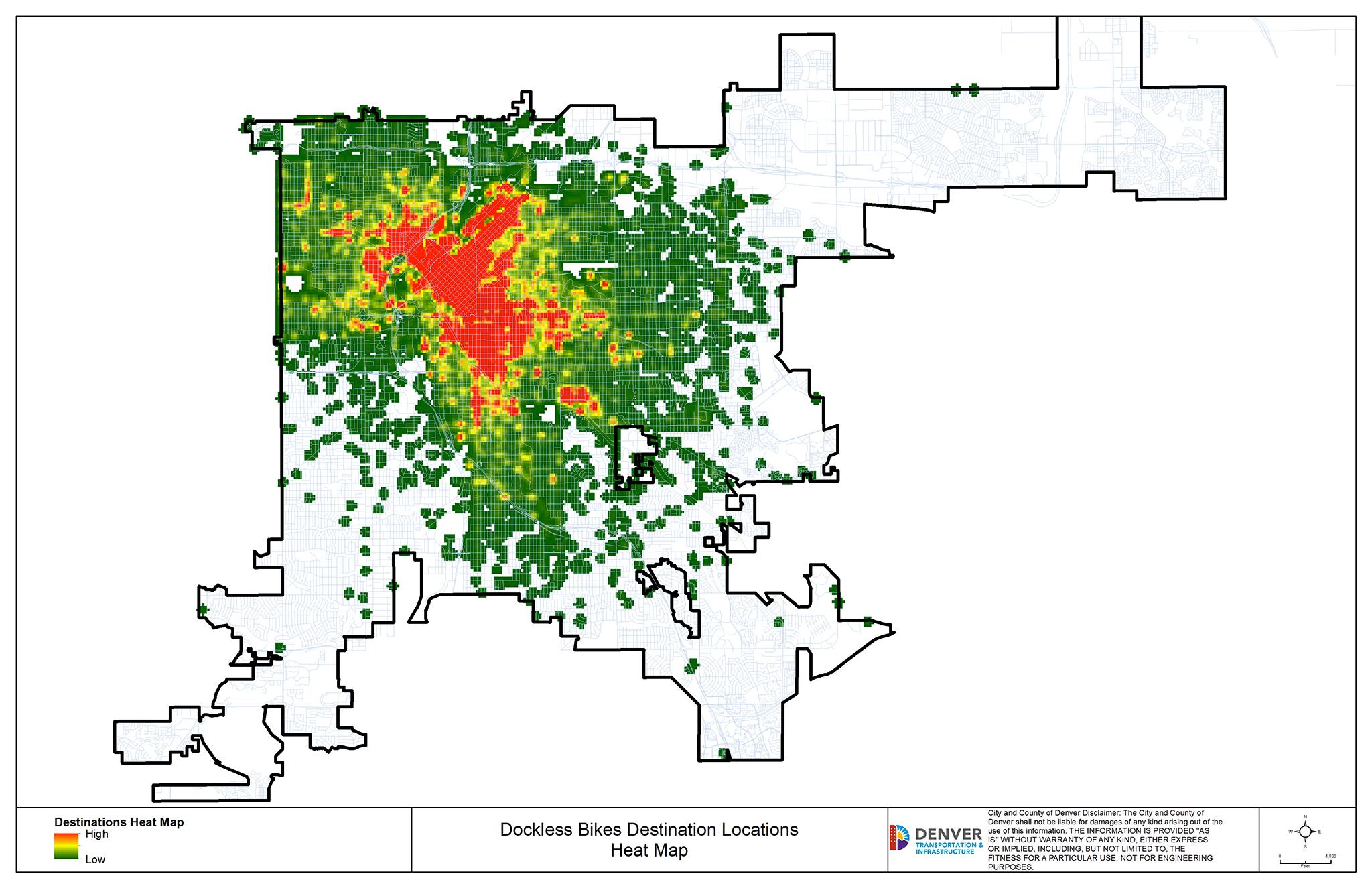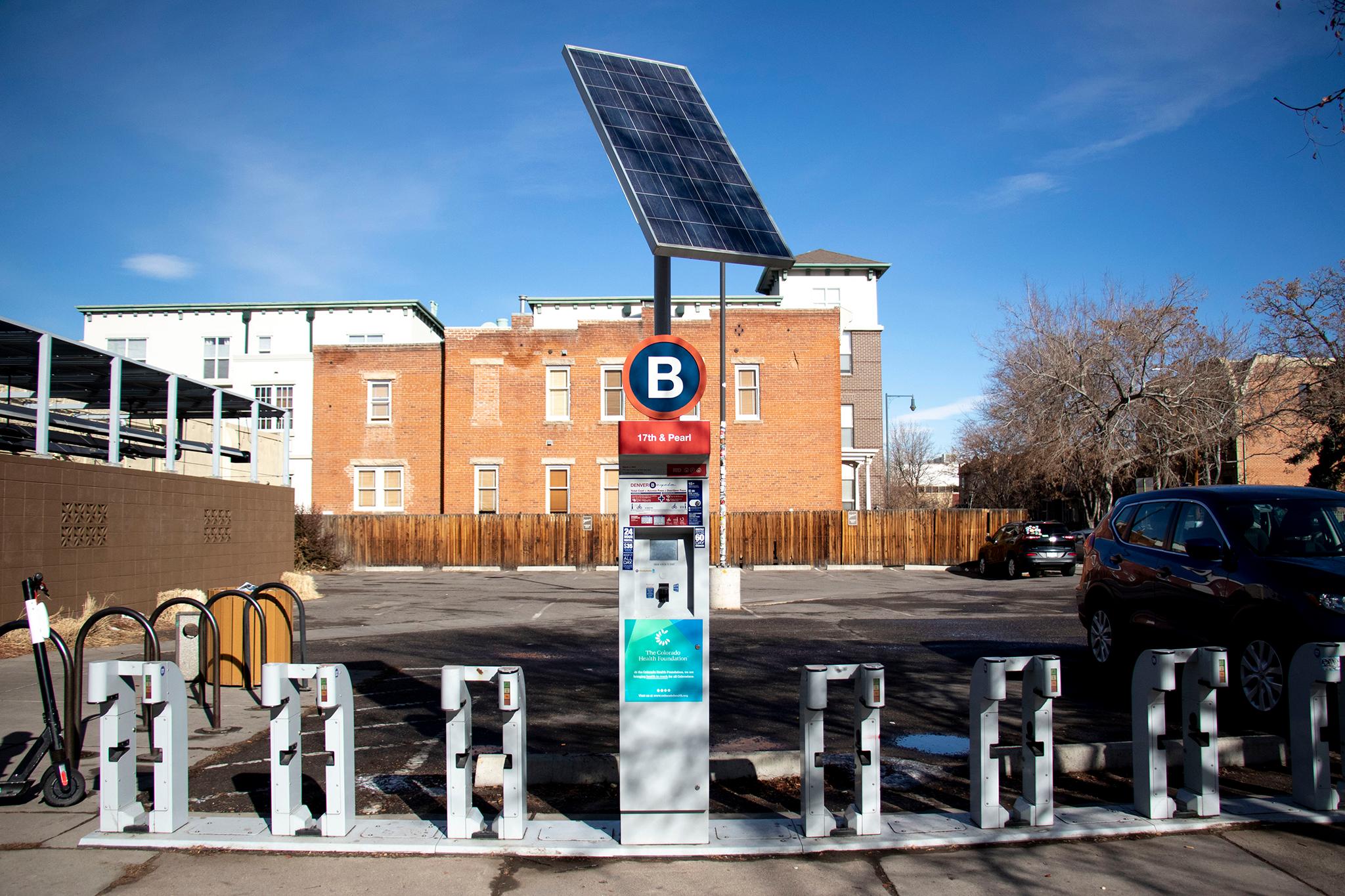After a decade, Denverites will no longer see the hefty, red B-cycle bikes being pedaled around town.
Competition from private electric scooter and bike companies, outdated tech, and dwindling ridership sunk the system. The city's legacy bike-share network will cease operations Friday.
It's a rough moment for Constantin Nickonov, who has logged tens of thousands of miles on B-cycle over the years, more than any other member. He doesn't know how he'll get around from now on.
"I have a car and stuff. I use the bus. I do have a mountain bike that I can use for coming into the city, but I haven't figured it out yet," he said. "It hasn't really hit me. Ask me tomorrow."
Denver's bike-share fleet -- bicycles available to the public for a fee -- will go from 987 to 250 overnight. It leaves a hole that the city government wants to fill with services from mobility companies, some of which already operate in Denver. Jump, an electric bike company owned by Uber, is now Denver's sole bike-share provider.
Transportation officials want to replace B-cycle with a hybrid bike- and scooter-share system.
The Department of Transportation and Infrastructure will ask mobility companies for proposals in early February, a spokesperson for the department said. They'll use a competitive bidding process to replace the current system, which is one of the oldest in the country. One or more bidders could be selected.
Lyft, Spin, Uber (which owns Jump) and VeoRide confirmed their interest in the contract to Denverite. Lime, Razor and Bird, three scooter companies that operate in Denver, have not stated whether they're interested.
Another interested company is Denver Bike Sharing, the nonprofit that partnered with B-cycle for the last 10 years. Executive Director Mike Pletsch is in talks with two unnamed companies that might contract with the organization and go after the city contract together.
"Denver Bike Sharing is proud of what it means to the community. We've received a lot of comments from some of our riders about the impact it's had on their lives," Pletsch said. "It's sad to have to turn the system off but at the same time we're excited to work with new vendors."


The nonprofit is working on taking out its stations today, Pletsch said. A fleet of 737 bikes will be dispersed to other cities with B-cycle equipment and possibly to some local nonprofits.
It's unclear whether the new system will include B-cycle-like stations where customers can park the bikes or if the system will be strictly "dockless" -- where vehicles are not physically tethered. Advocates for more non-car transportation options are not taking a stance on that piece, but on Thursday, they did lay out their ideal scenario for the future.
Reps from the Denver Streets Partnership, a coalition of sustainable transport advocates, said they want to see the service available for free or low-cost, which would require city subsidies.
"It's critical that cities are stepping up to the plate and treating it just like every other transportation option that we have out there, where we're putting public dollars into our streets, into our transit," said Danny Katz of Colorado Public Interest Research Group. "We should be treating micro-mobility the same way."
Taxpayers helped fund B-cycle annually to the tune of hundreds of thousands of dollars. The exact amount depended on the year.
To meet Denver's sustainability goals, advocates also want to see the companies serve every Denver neighborhood. Current scooter and bike operators, including B-cycle, tend to serve wealthier and whiter neighborhoods. Finally, the coalition wants to see lots of options -- e-bikes, traditional pedal bikes and e-scooters, and they want to see plans for parking them without obstructing sidewalks.
"All of those things are really important to have a robust network," Katz said. "If we do this well, we can maximize impact."
We'll know more details after the city government releases its request for proposals in February. Denverites can expect the new system up and running by late summer, a spokeswoman for the transportation department said.












